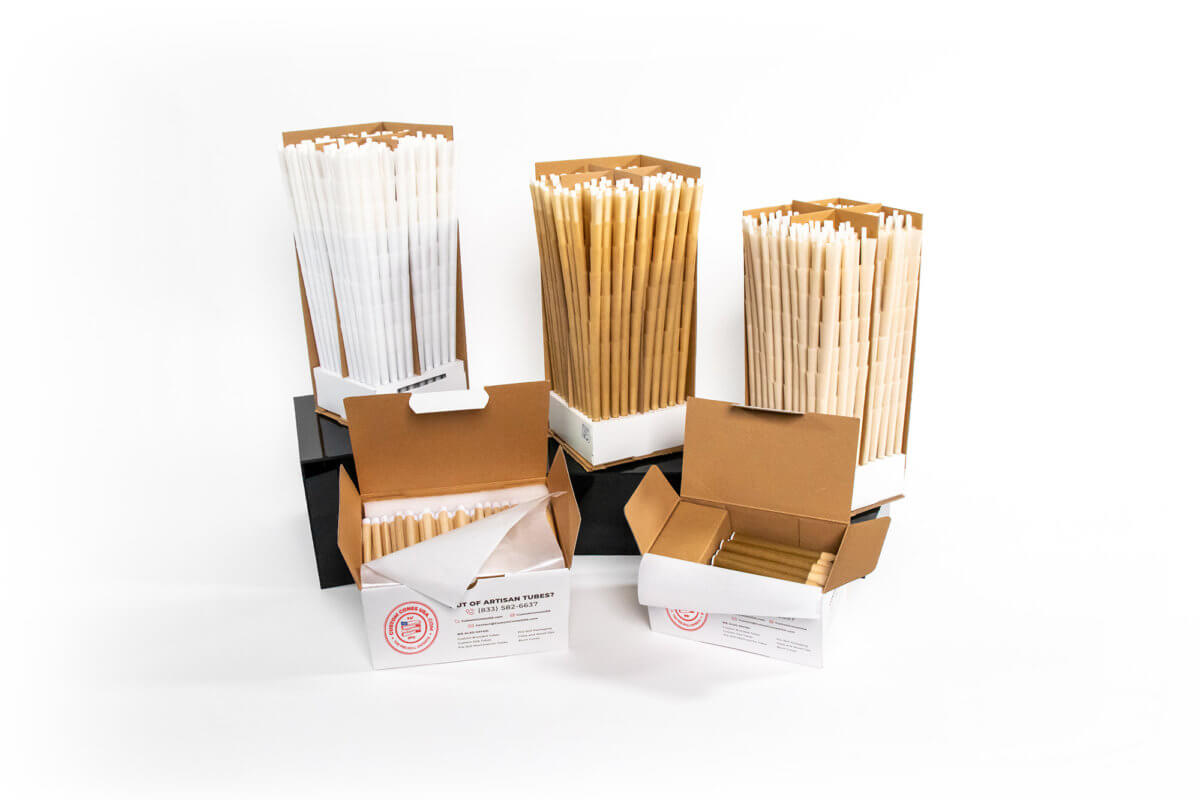By Harrison Bard, Co-Founder and CEO, Custom Cones USA
Understanding California’s Regulatory Landscape & Comprehensive Testing Requirements
While every state has its own testing requirements for the cannabis industry, few markets require more than California, which has been on the leading edge of cannabis testing and regulation since voters approved the state’s recreational market.
In the Golden State, all cannabis products must be tested by a licensed laboratory in their final form, or how the product will be sold to customers at retail, not just the flower. That means that not only does your flower have to be clean, but so does all of your other ingredients or components, since anything can trigger a failure, including the paper in your pre-rolls.
Testing Parameters: Ensuring Safety
Both flower and pre-rolls, for example, must be tested for:
- Moisture Content and water activity;
- Residual solvents and processing chemicals;
- Residual pesticides;
- Microbial impurities;
- Mycotoxins;
- Foreign materials;
- The “big four” heavy metals (arsenic, cadmium, lead and mercury);
- Cannabinoids; and
- Terpenes (if requested).
Almost all of these tests get at a safety issue.
Moisture content and water activity, for example, relate to mold growth. Water activity is a measure of the percentage of water in your cannabis product. In California, a cannabis sample cannot have a water activity of more than 0.65 Aw (or 0.85 Aw for solid edible products). This is because anything above 0.70 Aw creates the conditions for mold to grow, which can be dangerous if consumed.
Addressing Safety Concerns: Mycotoxins and Pesticides
Mycotoxins are also a safety issue. Mycotoxins are a toxic compound produced by molds, such as Aspergillus, and can damage the liver and even suppress the immune system. The two classes of mycotoxins that California requires testing for, Aflatoxins and Ochratoxins, have properties that can alter our DNA and even spur the formation of cancer cells. Mycotoxin testing ensures that products are safe for human consumption and inhalation. In California, samples may not exceed 20 micrograms of either aflatoxins and ochratoxins.
Like many states California also requires testing for residual pesticides, including 21 “Category I” chemicals that are not allowed in any amount and 45 “Category II” chemicals that include “action levels” that the sample may not exceed. These chemicals can be very harmful to humans, causing damage to organs and other long-term health issues.
The state provides a list of acceptable pesticides through its Department of Pesticide Regulation website.
The state also requires testing for the heavy metals mercury, cadmium, lead and arsenic. All four of those metals are toxic to humans, even at small doses, and can damage all the body’s vital systems, including pulmonary, reproductive and even the central nervous system. For inhalable products, the state sets the pass/fail actionable level at 0.1 micrograms for mercury, 0.2 micrograms for arsenic and cadmium and 0.5 micrograms for lead.
These tests for heavy metals are especially important because cannabis plants are a well-known bio-accumulator that absorbs and collects heavy metals from the soil in which it grows.
Regulatory Updates and Standardization
In 2024, California also created standardized operating procedures and test methods for testing cannabis flower and pre-rolls and requires all of its licensed laboratories to use the new SOPs to ensure testing is consistent across the state.
Key Considerations for Manufacturers: Paper Suppliers
But one of the keys to California’s regulations is the need to test all products in their final form, which means that not only does your flower have to pass all tests, but every other part of your product as well. For pre-rolls, this includes your rolling papers and cones. And there have been instances of the papers causing batches of products to fail testing.
There are also examples of rolling papers that, when tested on their own, have actionable levels of heavy metals or pesticides, for example.
Ensuring Compliance: Pre-Roll Manufacturers Beware
SC Labs, one of California’s licensed testing labs, found that 11% of rolling papers tested during a recent study would fail testing. The lab purchased 118 products from Amazon and several smoke shops in the Santa Cruz area. Its scientists tested 101 for heavy metals and 112 for pesticide contamination. At least one heavy metal was detected in 90% of the rolling paper products with 8% containing at least one heavy metal in concentrations above the allowable limits. Pesticides were detected in 16% of the samples with 5% coming in over the allowable action limits.
Because of this, pre-roll manufacturers need to be especially careful in their choice of paper supplier to ensure that the cones you pack your pre-rolls in don’t cause an entire batch of product to need to be destroyed, or worse.
Expert Insights and Recommendations
“Take due diligence to make sure your product is viable. Any one issue can be detrimental to your brand reputation,” says André Bayard, Compliance Manager at Custom Cones USA.
Bayard says it’s important to find a pre-roll supplier that focuses on testing and compliance and can provide a Certificate of Analysis to back up its products so your finished pre-rolls are as clean as the flower you put in them.
“In highly regulated markets, work with a company that focuses on those requirements and are trying to set the industry standard with their products,” Bayard says.
Conclusion: Upholding Standards
A testing failure can be cumbersome and costly, especially for smaller businesses, and can follow a company and its products even after the issue is corrected. You put a lot of care and effort into growing the best cannabis you can, so make sure your pre-roll supplier does too.
Join Us for More Exclusive Insights on California Marketplace
Striving to stay informed about California’s dynamic cannabis industry? We’re thrilled to invite you to two exciting NCIA events tailored for California’s vibrant cannabis industry. Mark your calendars for our upcoming California Stakeholder Summit being held in Sacramento, CA on Thursday, February 22nd and the California-focused edition of our Policy Matters webinar series being broadcast on Thursday, February 8th.
• California Stakeholder Summit 2024: Dive deep into the latest trends, regulations, and opportunities shaping California’s cannabis landscape. Join featured speakers United States Representative Congresswoman Barbara Lee (D-Oakland), Director of California Department of Cannabis Control, Nicole Elliot, and California Assembly Majority Leader Cecilia Aguiar-Curry (D-Winters). All industry professionals are invited; NCIA members attend free and have exclusive access to participate in the Q&A session. Register here to secure your spot.

• Policy Matters: Golden State Green – Regulating California’s Cannabis Industry: Join us for an insightful discussion on the evolving policies and regulations impacting California’s cannabis sector. Gain valuable insights from experts and thought leaders driving change in the Golden State. Register now to reserve your virtual seat.

Don’t miss out on these invaluable opportunities to stay informed, network, and shape the future of cannabis in California. Register today and be part of the conversation!



Follow NCIA
Newsletter
Facebook
Twitter
LinkedIn
Instagram
–